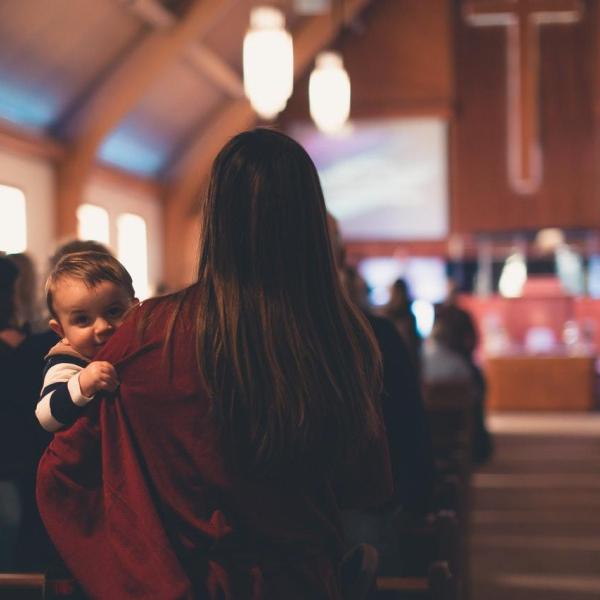Back to school
School, and the return to it after the summer holidays, can be particularly challenging for children who have had a difficult start in life.
“Mum, can we book a time to go into town and do the school uniform shop?”
The request stopped me in my tracks because it was from a child who is not a fan of school, and I was curious to know why her priorities now included school uniform shopping. It turns out that it was a way of getting me nearer a high street coffee shop where I might be so proud of her efforts in trying on shoes, that I may also get her a new drink that she’d just seen someone try on tiktok...
How are you feeling about children going back to school over the coming weeks?
Are you excited for a bit of space, for the children to see their friends again and for your food shop to return to a ‘normal’ size? Or perhaps it makes you feel anxious because of the impact that school has on your children and family?
So why is school, and the return to school after the summer, particularly challenging for children who have had a difficult start in life?
Have you ever felt really scared, even for a short while? Perhaps you were taken on a rollercoaster this summer that had moments where you felt terrified? As you remember how that felt in those moments as the ride goes slowly uphill and you’re about to plunge to the ground, imagine trying to learn a new way to do multiplication or what a fronted adverbial is (despite a large amount of home-schooling, I’m still not sure that I know). It’s a ludicrous thing to suggest because in those moments, your body’s efforts are focused on keeping you safe; your heart rate increases, your body freezes, your mind races with what-ifs, or you suddenly need the loo.
You can’t learn if you don’t feel safe.
It’s the same for all children in school; an anxious child isn’t a learning child.
If someone asks you how you are, your response is unlikely to be, ‘I feel safe’, because feeling ‘safe’ is something that most of us unconsciously feel all the time.
Safe – protected from or not exposed to danger or risk, not likely to be harmed or lost.
Feeling safe means that you’re not expecting harm, emotionally or physically. For care-experienced children, safety is not something they have always known or felt because of their experiences, including before birth. There is a recognised difference between actual and felt safety.
One of the ways that felt safety is achieved for children is through routine, familiar rhythms and trusted adults who help with emotional grounding.
School is not always a place where children ‘feel’ safe, especially after a long summer holiday with a new year group to enter where there are different expectations, environments and sensory information, different teachers and ways of doing things. And of course all of this is happening in the context of over 16 months living through a pandemic which has increased uncertainty even further.
We wouldn’t send our children anywhere if we thought they were in danger or even if we didn’t trust the adults. That’s where actual and felt safety are different and understanding and prioritising the latter is key to helping our children.
Felt safety can be affected by so many things (positively or negatively). From having a stable routine to knowing when and where food is, from the absence or presence of certain smells to there being more/louder/different voices. Understanding the needs and story of individual children is what foster and adoptive parents do well as they learn what helps (and what doesn’t). But translating this to a school environment can be challenging, even when both school and parents are willing!
Felt safety is just one concern to consider alongside a myriad of others, from specific educational needs to additional diagnoses and provision, supporting friendships and emotional well-being, and it’s all part of understanding why the return to school (and school in general!) can be difficult for families raising care-experienced children.
Here are 3 (and a half!) things which could help in this ‘back to school’ season.
Communication
Who are the people directly connected to your child(ren) and who have positions of leadership and influence in the school who need to understand your child(ren) like you do? Find out and build relationship with them as soon as you can, so you can take them on a journey of understanding. Remember that most people who go into teaching do so to help children, so they will want to be part of helping them too.
Knowledge and preparation
Find out as much as you can on behalf of and with your child(ren). Where can they go if they’re worried? Who is your direct point of contact? What food is there and when can they have it? What room(s) are they going to be in? What is their timetable, and can you have a copy? If you know any worries your child has, or things they want to know, then you can ask relevant questions and use the answers to prepare your child(ren), gently, ahead of time.
Be more swan
A swan glides serenely across the water, the picture of calm, but ornithologists will tell you that underneath the surface is a different picture as their feet are paddling furiously to generate their movement across the water.
Even if you’re anxious, if you can model calm to your child(ren) this will help their emotional regulation, as they match their rhythm to yours. Paddle hard to gather knowledge, make a plan and pray. To your child(ren), be full of peaceful reassurance that they’re safe and that they can do hard or new things, even if they feel scary.
And after the school run?
Always have snacks. For your child(ren) and you. No after school time has ever been made worse by the presence of good snacks. Crunching apples or crisps, sucking juice through a straw or savouring the taste of something delicious is a great sensory experience that can help regulation, but it’s also a way of showing care in a practical way in a potentially tricky transition moment. And also, isn’t every child always super hungry at the end of a school day?!
We’re praying as you head back into this school season, for wisdom, strength, joy and perseverance – for you and your families.
You might also be interested in

Articles
Reflecting on Good Friday
Despite the outward appearance of a crushing setback, Good Friday was a day of triumph, unveiling God's divine plan and the true nature of his reign.
Read more
Articles
The Church: a community of shared light
Our Northern Ireland and Nations’ Lead, Roger Cooke shares some reflections on fire, community and the Olympic Games.
Read moreI would like to find out what is
going on in my area
Join our mailing list for the latest Home for Good news and ways to get involved.
Together we can find a home for every child who needs one.
£25 per month could help us create and collate inspiring articles and blogs that encourage and inform the families and communities who care for vulnerable children








 Thank you, you're giving:
Thank you, you're giving: